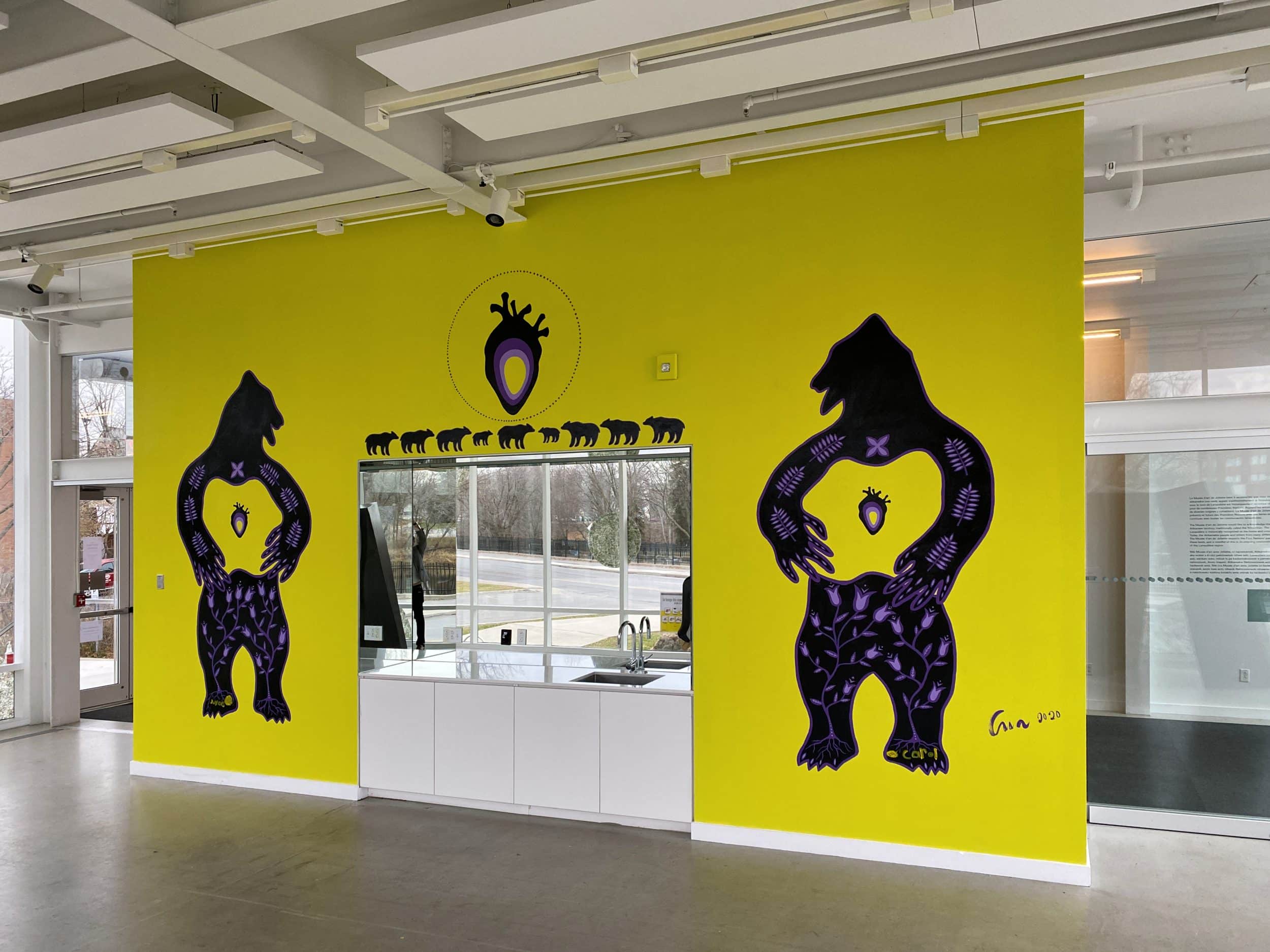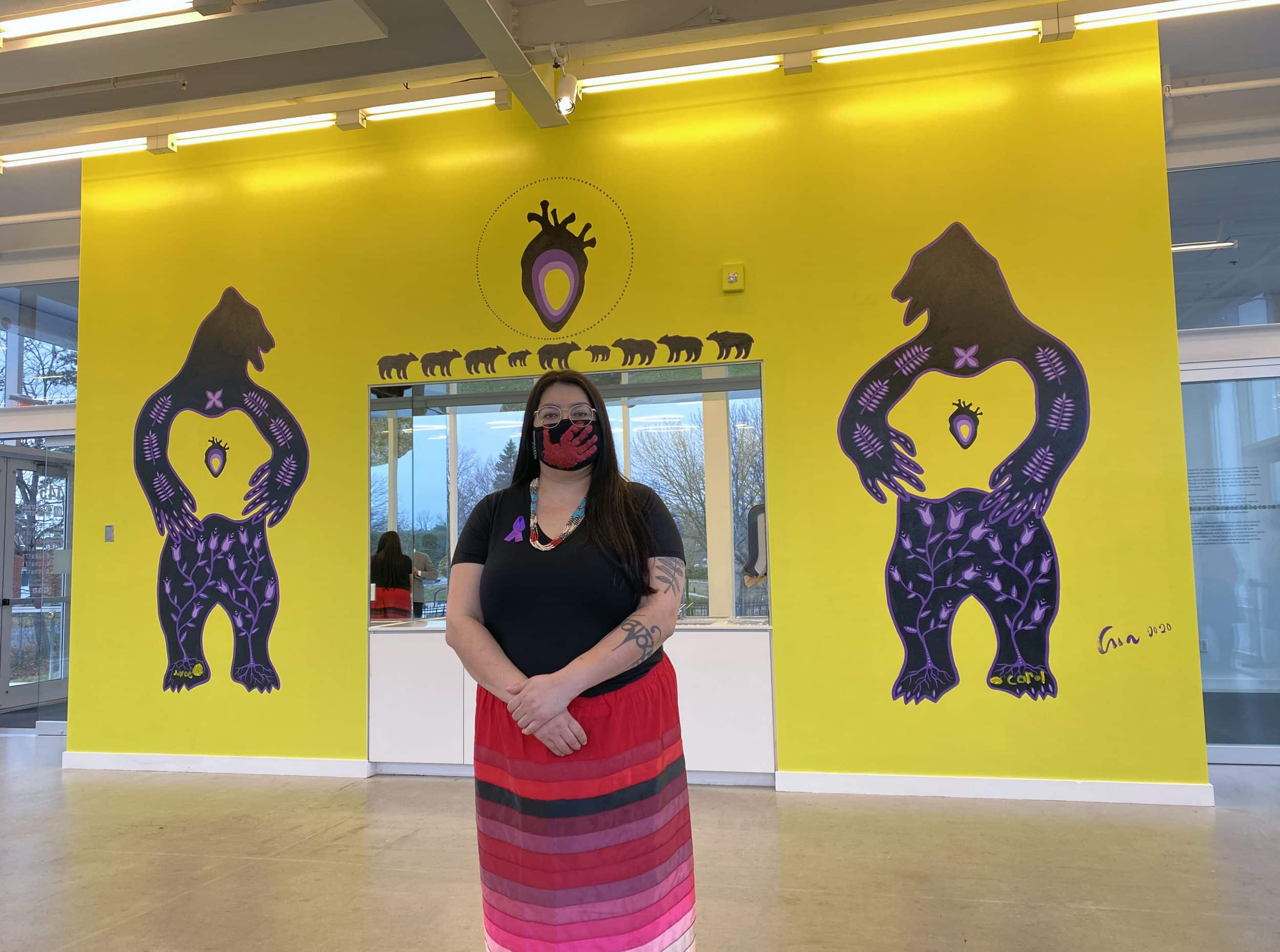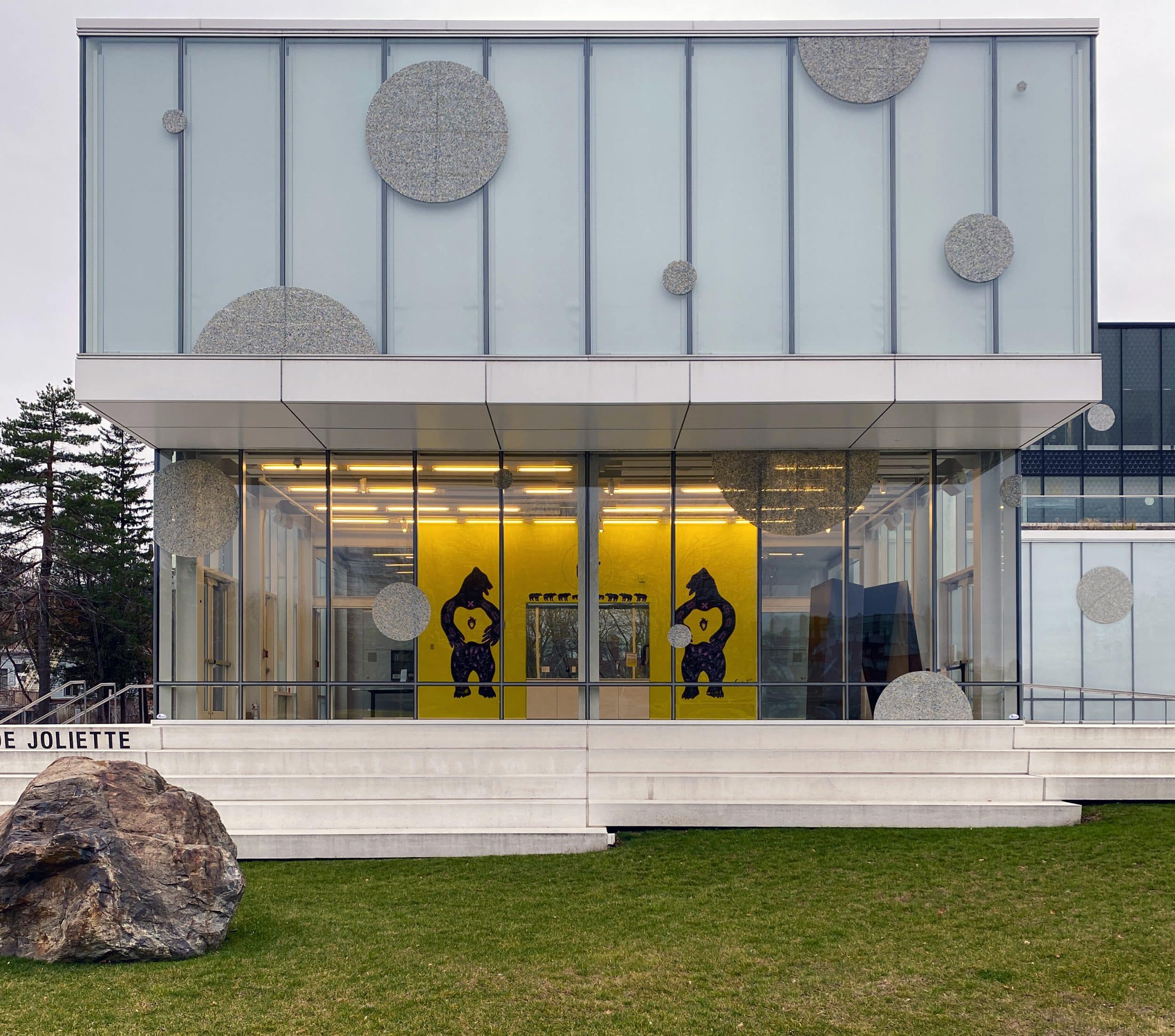About —
The mural by Eruoma Awashish, which she painted from November 9 to 13, will be on display for at least one year. The work, on the wall of the museum’s large ground-floor atrium, illuminates the entrance to the city and can be seen from the street, day and night.
Titled Mackwisiwin [Strength], the mural portrays the family of Joyce Echaquan. Joyce and her husband, Carol, are depicted as two large bears adorned with mountain-ash blossoms. Above them are nine bear cubs, representing the couple’s seven children and two grandchildren. A heart is seen at the very top, representing the humanity of Quebecers and unity between peoples. The bears symbolize the strength and medicine that all peoples need in order to heal and look ahead.
“Because the museum is located at the entrance to the city, this mural is one of the first things people will see when they arrive in Joliette,” says Jean-François Bélisle, Executive Director and Chief Curator at the Musée d’art de Joliette. “We believe that as a cultural institution, it is our duty to take action to make First Nations voices heard, and reopen the dialogue between cultures.”
“With this mural I am representing Joyce’s family,” says Eruoma Awashish. “I chose a vibrant yellow-green for the background, because I wanted it to be luminous. Through suffering, we grow and mature. We need to take tragedies like Joyce’s death as inspiration to rise up, grow, make progress, and make sure such things never happen again. Through her death, Joyce planted a seed that will grow inside all of us. I would call it an awakening. With this mural, I wanted to shine a light and bring beauty to the fore.”
Image in the banner:
Mackwisiwin [Strength], a mural by Eruoma Awashish, in memory of Joyce Echaquan, at the Musée d’art de Joliette, 2020
Biography —
Born in 1980 to a Québécoise mother and an Atikamekw Nehirowisiw father, Eruoma Awashish grew up in Opitciwan. She holds a bachelor’s degree in interdisciplinary art from the Université du Québec à Chicoutimi and is currently completing a master’s degree in art, specializing in research and creation.
Her works inspire viewers to think about identity and the sacred. Her artistic approach is aimed at creating spaces for dialogue, in order to promote a better understanding of Indigenous cultures. The decolonization of the sacred is central to her work.
In 2018 she participated in the fourth edition of the Contemporary Native Art Biennial (BACA) and presented an installation at the Montreal Museum of Fine Arts in the winter of 2017-18, a project developed at the “Déranger” workshop held in collaboration with the National Film Board of Canada and the Oboro artists’ centre. In 2019, Eruoma Awashish participated in a group exhibition of Indigenous artists at the Musée d’art de Joliette titled Of Tobacco and Sweetgrass: Where our Dreams Are, curated by Guy Sioui Durand and produced in collaboration with the Indigenous Curatorial Collective.
In the wake of the death of Joyce Echaquan, Eruoma joined a collective of 37 women in signing an open letter to premier François Legault on the subject of systemic racism.
With the collaboration of the Centre d’amitié autochtone de Lanaudière and contributions from local MNAs and MPs.






